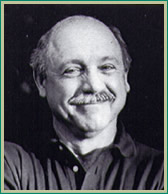
Openness
|
 |
|
| Domenico Piazza Senior Associate |
I am currently doing life coaching with five individuals. This is a natural extension of the work I’ve done for many years. For example: coaching students in writing labs, supporting teachers whom I trained to do brain-centered teaching, and administrators who over the years have sought me out about leadership challenges. In a sense, I have been preparing for this phase of my life for a long time.
There are great lessons to be learned when you presume to coach others. Each of these lessons involves a kind of openness. First, you must become a good listener. In order to listen properly, your mind must be open to what a person is saying. It’s easy to allow your own thoughts to get in the way of real attention. I find there is a constant temptation to interject my own thoughts, albeit silently, while the other person is speaking. It has the same effect as speaking aloud over another’s comments. Openness always requires the making of unoccupied space that allows another to enter.
Second, asking the right questions depends on hearing what’s being said. For me, asking appropriate and provocative questions requires that they relate directly to what’s been said. Linking a question to a comment just spoken assures the client that they have been heard. It also invites the client to extend their remarks. I find that in doing so, the comments delve deeper more quickly. It is also important that I make sure I’m asking real questions. One way to check the realness of a question is to ask myself, “Do I already know the answer?” Another challenge to opening oneself to the creation of powerful and useful questions is to check whether they are, in fact, actually questions. “Why did you delay so long before you took action” might be more an accusation than a sincere inquiry.
Third, a true and respectful dialogue is encouraged when there is an open space into which a client can enter safely. It’s much like welcoming a friend into your home. When the door is opened, we step back to admit the other. This stepping back is the most important aspect of openness. We create room for the other to step in. That state is achieved by the absence of judgment. This, I think, is the most precious of gifts we can offer. As an individual becomes assured that they are not being judged, they will begin taking small forays into the space provided. An animal trainer I know once told me that when first introduced to an unruly dog, she allows the animal the time and opportunity to approach. She actually directs her attention to someone or something other than the animal. Within minutes, she explained, the pet approaches her and begins to invite her attention. This is her version of created space.
Finally, openness is sourced by a feeling of trust. We achieve this trust through non-judgmental regard for the well-being of others. This is the core principle of openness.
![]()
Center for Empowered Leadership ®
Email: info@cfel.org
Phone: 1.609.259.7911
